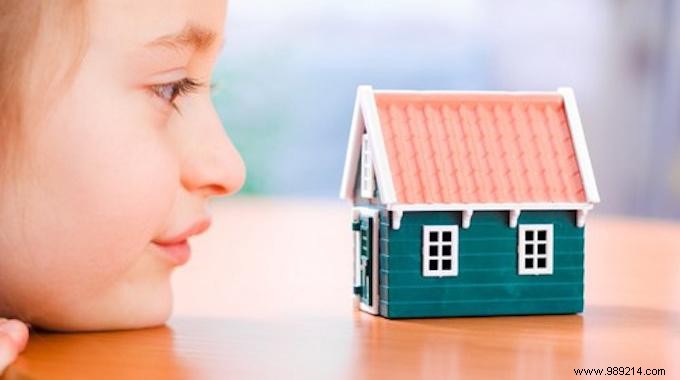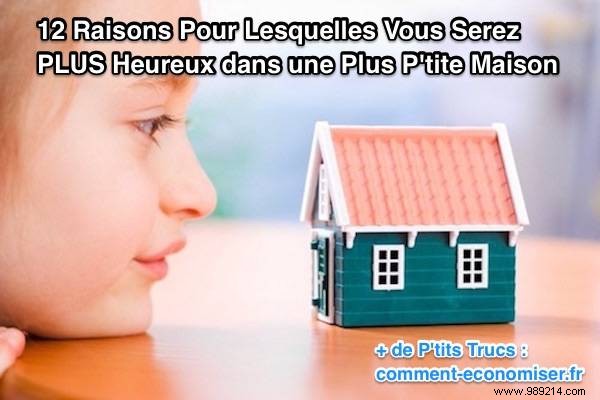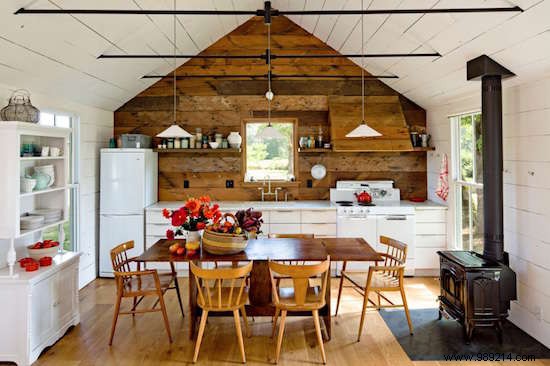
Recently my parents decided to buy a smaller house.
And last week, I finally had time to visit it for the first time.
During my stay with my parents, I was surprised to see how much my mother kept telling me "they loved their new little house."
I wasn't that surprised, because I'm a minimalist myself after all. But I have to admit, I was surprised how often she said it over the whole weekend.
At the end of the weekend, I sat down with my mom and asked her to list all the reasons why she felt happier in her new little house.
This article lists all these reasons.

People tend to want to buy bigger homes for a number of reasons:
• They no longer have a place in their current house.
• They receive a promotion at work.
• They are convinced by a real estate agent that they can afford it financially.
• They hope to impress people around them.
• They think a big house will be their dream home.
Another reason people keep buying bigger and bigger homes is because no one tells them they shouldn't.
The mantra of our consumerist culture is always the same:"always buy more and always bigger."
People believe this lie and choose to buy a bigger house just because "that's what you're supposed to do" when you start making money:you buy more things and more things large.
No one ever told them otherwise. Nobody gives them permission to want smaller things, rather than bigger things.
No one gives them the right reasons why they would, in fact, be happier in a smaller house.
So in an attempt to break that silence, here are the 12 reasons you'll be happier in a smaller home:

1. Easier to maintain. Anyone who has ever owned a home knows that it takes a lot of time, energy and effort to maintain a home. All other things being equal, a smaller house therefore requires less time, energy and effort to maintain.
2. Less time spent cleaning it. This reason alone is reason enough to have a smaller house...
3. Less expensive. Smaller houses are cheaper to buy and cheaper on a day-to-day basis (insurance, taxes, heating, electricity, etc.).
4. Less debt and less risk. Dozens of online calculators help you figure out "how big a house you could afford." These calculations are based on your net income, your savings, your debts, and your monthly repayment capacity. These calculations are also based on the principle that we can spend "33% of our net income repaying a loan each month." But if we can be more financially stable and happier spending only 15%...why should we choose to spend 33%?
5. It frees your mind. As is the case with all things that belong to us, the more things we have, the more they end up owning us. And the more things we have that belong to us, the more our mental energy is held hostage by those things. It's exactly the same principle with something as big and important as a house. Buy small and free your mind.
6. Less impact on the environment. A smaller house requires fewer resources to build and fewer resources to maintain. And that's all of us who benefit.
7. More time for you. Most of the benefits listed above (less cleaning, less maintenance, more mental freedom) result in freeing up time in our schedule to pursue the things in life that really matter. (whatever those things are for you).
8. This encourages family bonds. With a smaller house, there are more interactions between family members. It is true that for some people this is often the reason why they buy a bigger house, but I just think the reverse is also true.
9. It forces you to decrease the number of things you own. Moving to a smaller home intentionally forces you to lighten up the number of belongings you own and store at home.
10. Less temptation to cram things. If you don't have room in your house to put a treadmill, you will be much less tempted to buy it from the start (no offense to those who have a treadmill at home... and who really use).
11. Fewer decorations to choose from. Although some people like the idea of being able to choose the color of the walls, the color of the carpets, the furniture, the decor and the lighting for a whole bunch of rooms, for me this is not the case.
12. A bigger real estate market. By definition, a smaller, more affordable house is accessible to a greater percentage of the population than a more expensive, less affordable house.
Your home is a very personal decision and obviously a multitude of factors go into the decision. All these factors cannot, of course, be summarized in a small article like this.
But this article was not written to answer each of these issues. You are the only person to know all these variables that come into play when making your decision.
I just think you'll be happier if you buy smaller, rather than the other way around.
Besides, if you're looking for a good book on minimalism, I recommend this one.